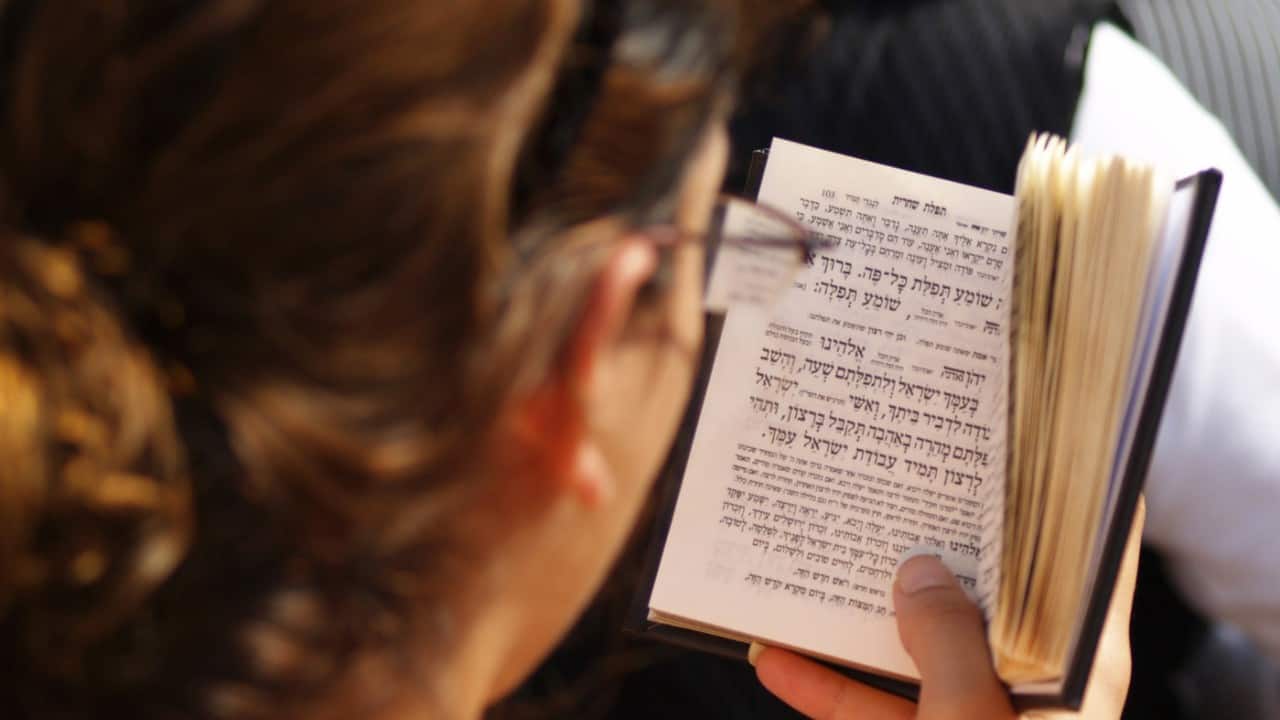The Need for Prayer and the Mitzvah of Prayer
According to a recent survey, about 86% of Americans say they believe in G-d, while 9 out of 10 Americans claimed to “engage in prayer regularly.” Judaism maintains that human beings have a natural desire to seek a relationship with G-d and to connect with a reality beyond the purely physical. The statistics indicate that this is true even in a nation where wealth and comfort abound. We are drawn to prayer, explains the 13th Century poet and philosopher, Rabbi Yehudah Halevi, because:
“Prayer benefits the soul just as food benefits the body.”
The entire Book of Psalms, (Tehillim) reflects our longing to connect with G-d through pray. The fact that millions of people of many cultures and backgrounds have turned to Psalms for inspiration, attests to the universality of that longing. Tehillim, are the prophetically composed prayers written mainly by King David. Prophecy is usually defined as G-d speaking to people. Tehillim on the other hand, consists entirely of people speaking to G-d. This “reverse prophecy” is nonetheless considered prophecy, and teaches us a fundamental idea about prayer. Just as prophecy is necessary in order to know what G-d is saying to us, we also need prophecy to know what we really want to say to G-d. On one level it is clear that we want to ask G-d for health, wealth, dignity and other human requirements. Tehillim allows us to access the deepest desires of our soul and to convey its needs to G-d.
The natural inclination to pray must be encouraged and nurtured. If an individual is never able to communicate his true feelings he will become depressed and unable to function well. Similarly, the soul needs to express itself and speak with G-d, and if it is prevented from doing so through prayer, it too will experience depression and become dysfunctional. Rabbi Kook explains that by allowing the soul to articulate its desire for contact with G-d, prayer removes a burden from the soul and gives it a feeling of relief and freedom.
The Talmud criticizes a person who looks upon the act of prayer as a burden, because he fails to understand that it does exactly the opposite. Prayer relieves his soul of a burden that otherwise rests on it. The Bible describes prayer as the “pouring out of the soul before G-d.” In times of need and distress, calling out to G-d is an expression of our deep seated belief in Him and His capacity to help us. That G-d listens when we call out to Him is a kindness, but it is also something that we expect as His children. The Bible tells us on numerous occasions, “You are children to the Lord, your G-d.” Just as nothing is more natural for a child than to call to his parents when he is in trouble, so too human beings instinctively cry out to G-d in times of distress.
How does one respond to difficulty and disappointment in life? If an individual turns to G-d in prayer, it becomes clear that G-d is his ultimate source of hope and the one in whom he places his trust. For this reason, even non-Jews are obligated to pray in times of suffering, as a fulfilment of their obligation to believe in G-d:
The essence of belief in G-d is that only He can ultimately guarantee our livelihood or cure our sicknesses. And when a person does not trust in G-d and does not pray to Him, it is as if he is denying belief in G-d.
In addition to praying in times of need, an independent Biblical commandment obligates us to pray every day, as Maimonides writes:
There is a commandment to pray every day, as it is written, “You shall serve the Lord Your G-d with all your heart.” …this “service” refers to prayer, as it says “And to serve Him with all your heart.” Our Sages said, “What is type of service takes place in the heart? Prayer.”
To fulfill this obligation, prayer must contain three distinct elements: praise of G-d, requests for needs and the acknowledgment of G-d as the Source of everything by expressing thanks to G-d. All of our prayers are included under one of these three categories, while the central prayer of the daily liturgy contains all three.

